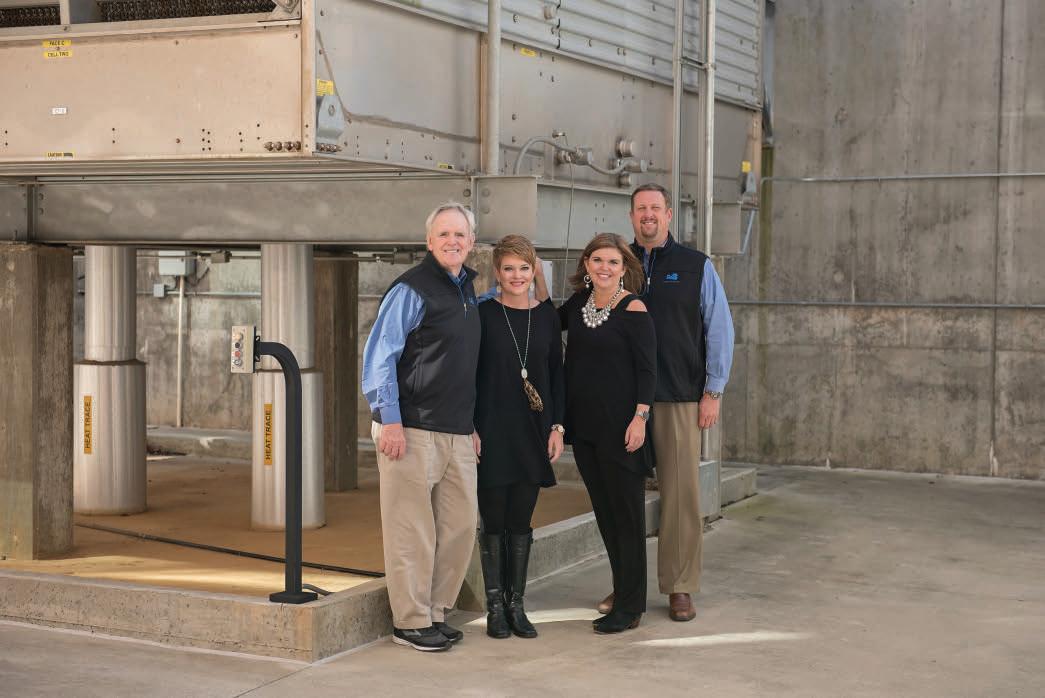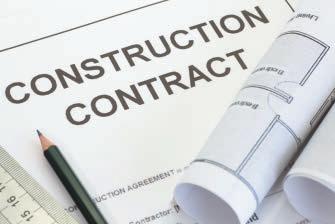
4 minute read
COVID-19’S IMPACT ON CONSTRUCTION
from Winter/Spring 2021
by agcgeorgia
Is There a Remedy? Time Extension, Force Majeure or More?
By Bill Shaughnessy, Partner, William Underwood, Partner, and Chris Cazenave, Partner, Jones Walker LLP
As we turn the calendar into 2021, we expect to see an increase in disputes between owners, contractors, and suppliers about the time and cost impacts due to COVID-19. Now is the time to consider how your contract’s “delay,” “time extension,” or “force majeure ” clauses allocate risk between parties.
The term “force majeure” in U.S. common law means natural and unavoidable catastrophes that affect contract performance. Force majeure contract clauses allocate the risk of such events. Most U.S. standard construction contracts do not use the term “force majeure.” Instead, relief for force majeure events is addressed in delay and time extension remedial clauses.
What constitutes a force majeure event?
A force majeure event may exist if it is unforeseeable and outside the contractor’s control. Factors in determining whether a force majeure clause offers relief include: (1) whether the language in the force majeure clause specifically references the event as beyond the parties’ control; (2) whether the force majeure event was foreseeable; and (3) whether the force majeure event caused the party’s nonperformance.
COVID-19 might check these boxes. But it ultimately depends on the trier-of-fact’s evaluation of:
• The three (3) factors listed above;
• Your contract language;
• The facts!; and
• The relation between COVID-19 and the relief sought.
If your force majeure clause contains a specific list of events (e.g., “pandemic”), then COVID-19 would almost certainly fit. But some courts construe the language of force majeure clauses to exclude events that are not specifically identified.
So what if your contract limits force majeure events specifically to events involving “acts of God” or nature?
The definition of “act of God” varies from state to state, and some states narrowly describe an “act of God” as something caused by nature. In which case, courts may be less likely to find the parties intended the clause to cover COVID-19.
Other force majeure clauses may include a “catch-all” provision. In these instances, some courts have held that common law notions such as unforeseeability should be considered when a party has not specifically listed an event.
Is COVID-19 an excusable event under form construction contracts?
Form construction contracts do not have “force majeure ” clauses but contain “excusable delay” clauses that could be applied to COVID-19 impacts and delays.

AIA – Excusable Delays
The AIA A201-2017 General Conditions Section 8.3.1 includes “catch-all” terminology that provides time extensions for events outside the contractor’s control:
If the contractor is delayed * * *
(3) by labor disputes, fire, unusual delay in deliveries, unavoidable casualties, * * * or other causes beyond the contractor’s control; * * * then the contract time shall be extended for such reasonable time as the architect may determine.
COVID-19 impacts could fall into several of these categories.
ConsensusDocs –Relief for “Epidemics”
The ConsensusDocs 200-2017 Standard Agreement specifically identifies “epidemics” as an excusable delay in Article 6.3 and almost certainly allows contractors relief from COVID-19 delays.
DBIA Expressly Provides Relief for Epidemics Under Definition of Force Majeure
If you are working on a design-build project using a standard DBIA form that incorporates the Standard Form of General Conditions (DBIA 535, 2010 version), a contractor will likely be entitled to a time extension for COVID-19 impacts, but not an adjustment to the contract price. The DBIA forms define force majeure events to include events beyond the contractor’s control, including “epidemics.” However, and unique from other standard contract forms, Section 8.2 of the DBIA form (Delays to the Work) expressly carves out force majeure events and prohibits a contractor from contract price adjustments for force majeure events, but allows such adjustments for other changes such as differing site conditions and hazardous conditions.
What do federal, state, and local contracts say?
Federal contracts rely on time extension clauses for delays outside the contractor’s control. FAR 52.249-14 lists examples of excusable events of delay, including “epidemics” and “quarantine restrictions,” which should provide a contractor a time extension for COVID-19 delays.
Similarly, most state/local contracts do not use the term force majeure. As a result, you should analyze COVID-19 impacts and review your excusable delay provisions.
What if your contract does not have a force majeure clause?
If a contract does not contain a force majeure clause, consider the common law doctrine of commercial impracticability. While not all states recognize impracticability as a defense, the Uniform Commercial Code §2-615(a) states that delays may be excusable if performance has been made “impracticable” for an event outside the seller’s control. The Restatement (Second) of Contracts Section 261
>> INDEX OF ADVERTISERS
recognizes the same defense. Both could be applied to COVID-19 delays.
Further, COVID-19 has resulted in governmental laws, orders, and regulations, which may make contract performance impracticable or impossible, and your contract may provide relief in such scenario.
Recommended COVID-19 Force Majeure Action Items
We recommend the following actions to plan and evaluate for a force majeure event:
Review your contract. Identify key clauses implicated by COVID-19. What relief are you entitled to under these clauses? Did you preserve your rights (e.g., required notice) to claim this relief in terms of notice and other documentation?
Identify impacts and how impacts were documented. What delays did your company face? How were your downstream vendors and suppliers affected? What notices were sent out, if any?
Communicate to inform, not to agitate. It may not be too late to provide notice under contract. Formal notices and other written and verbal communications among the parties should be precise, factual and without emotion or hyperbole. The point is to inform, while also satisfying technical notice requirements. ■
The authors of this overview have written a comprehensive article by the same title. To read it, please visit https://bit.ly/3cbfLB4 or scan the QR code.

Bill Shaughnessy, William Underwood and Chris Cazenave are partners at Jones Walker LLP, specializing in construction law.






